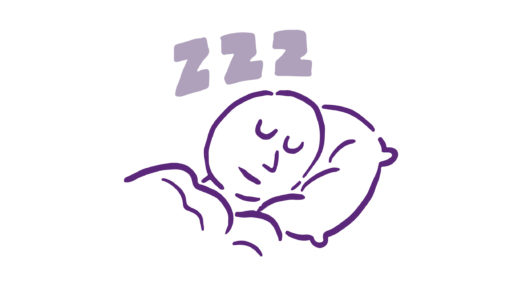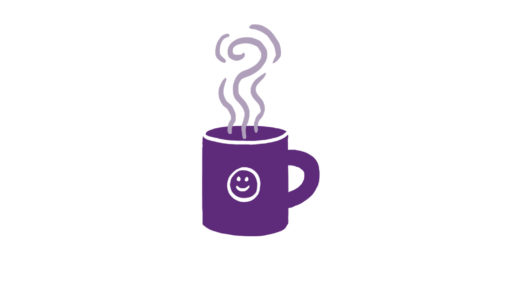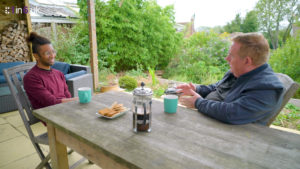Sleep
It’s very normal for people who have lived through traumatic experiences to have trouble getting to sleep, have nightmares, or wake in the night.
Bad sleep can then make it harder to manage with the stresses and issues you come across in day to day life.
You didn’t have any control over what happened to you, which has lead to your sleep issues, but you do have control over action you can take now.
This page has some tips and suggestions for things you can do to improve your sleep.
Some people find these ideas useful, but remember that different things work for different people at different times.
Only try what you feel comfortable with, and try not to put too much pressure on yourself. If something isn’t working for you (or doesn’t feel possible just now), you can try something else, or come back to it another time.
Doing a relaxation technique can help you prepare for sleep. The more often you do them the easier they become.
Do something you find calming like listening to relaxing music, having a bath or doing a repetitive activity such as sanding or cleaning something.
Consciously tense and relax your muscles, one after the other, starting with your toes and working up your body until you reach the top of your head.
Picture a scene or landscape that has pleasant memories for you, or that you imagine would be a calming or peaceful place to be.
Research shows that it really helps if you establish a regular routine of things you do in the same order at the same time every night. You might need to try different things before you find what works for you but an example might be:
Hot drink sitting on sofa – empty bins – do teeth – set alarm – undress – read book in bed – turn light off – do breathing exercise – sleep
It also helps to fix set times for starting the routine of going to bed and waking up at around the same time every day. It only takes a few days to develop a new habit.
If you find that you are lying in bed wide awake it might help to go to bed only once you feel really tired and ready to sleep, but then still get up at the same time.
You might not have much control over where you sleep – for example, if you’re staying in temporary accommodation. But there might still be small changes you can make. For example:
- Try different temperature, light and noise levels to see what works for you.
- Lots of people find dark, quiet and cool environments best, but everyone is different.
- If you can’t sleep in darkness, try keeping a low wattage lamp as far from the bed as possible.
- If silence makes it harder to sleep, listen to music, nature sounds, a podcast or the radio.
- You might find it helpful to try different bedding – for example, a warmer or cooler duvet, or a different pillow.
- Consider what smells are around because this could also be affecting your sleep.
- You could try changing what you wash your sheets with.
For some men just being in a bed can be very triggering if that is where your experience(s) happened. If this is the case for you then you can take steps to reclaim bed as your safe space.
It really helps to talk this through with a counsellor because they can help you to find ways to break those negative connections which are unique to you and your situation.
Looking after yourself physically during the day will impact on what happens at night.
For example eating well and particularly avoiding caffeine and sugar after lunch will help. It’s also good to avoid large meals right before going to bed.
Physical activity during the day will help you sleep and be good for your general sense of wellbeing. It’s particularly beneficial to be active outdoors, spending time in natural light.
Some people find they need to stop any physical activity a few hours before going to sleep, others benefit from a blast of activity to tire themselves out, so notice what is best for you.
Using screens in the evening, including on tablets and mobile phones, can negatively affect your sleep due to the blue light they emit.
It can help to consider:
- avoiding screens an hour or two before bed.
- not keeping a phone or device in your bedroom.
- avoiding stimulating activities, such as playing games.
- using a blue light filter, night mode or dark mode – you can find these options in your device ‘display’ settings.
- adjusting your notifications so you are not subconsciously waiting for it to go off – use silent, airplane, or do not disturb mode.
A sleep diary might help you better understand your sleep issues better. Record information such as:
- what time you go to bed and what time you get up
- total number of hours of sleep, or a rough idea if you’re not sure
- overall quality of sleep, ranked 1–5
- how many times you wake up in the night, how long you’re awake and what you do while you’re awake
- whether you have nightmares, or have sleepwalked during the night
- whether you sleep during the day and for how long
- any medication you’re taking, including the dose and what time you take it
- the amount of caffeine, alcohol or nicotine you have
- the amount of physical activity you do
- what you eat and drink
- your general feelings and moods, including any anxious or repetitive thoughts.
If you keep a sleep diary for at least two weeks you may start to notice clear patterns which can give you information about what you can do to improve things. For example if your worst nights were on days when you checked emails in bed, or after you had eaten a heavy dinner, then you can make necessary changes.
Your thoughts and feelings about your unwanted sexual experience(s) might be impacting directly on your sleep.
There may be other issues you are dealing with too, such as money worries, work stress or addiction.
It can really help to talk to someone about what is going on for you, and to know that you don’t have to deal with it on your own. No one will pressure you into talking about anything you are not comfortable with.
Support during the night
If you’re awake and you need support with difficult feelings or worries, or want to feel less alone you can:
Call Samaritans who are open 24 hrs every day on 116 123
Nightmares can be like flashbacks you have when you are asleep. They might be very clear reminders of what you experienced, and can have the same unsettling, confusing and distressing after-effects.
While flashbacks are usually recognisable memories of actual events, the content of nightmares can be less concrete.
They might include aspects which represent the trauma in some way. It might not always be clear exactly what they mean but they can leave you with a definite sense of being afraid, scared, alone or disorientated. This might remind you of how you felt then so can bring up difficult thoughts and feeling associated with your experience(s)
They can also have physiological effects (sweating, increased heart rate, shortness of breath) which can make it hard to get back to sleep afterwards.
There are many tools and techniques you can use to calm and ground yourself just after a nightmare. You can also try the Nightmare Buster Exercise to tackle recurring dreams.
"I didn't realise that my insomnia could be linked to what happened to me so long ago. Once I made the connection and sought help about that, the sleep got better by itself"
-

Nightmare Buster Exercise
Learn a way to stop recurring nightmares.
See more
-

Conversation about Sleep Issues
Tanaka talks to John about the impact of sexual violence on sleep, and things you can do to support yourself.
See more
-

Safe Space Exercise
You can use this exercise any time to feel calm. It will help you sleep and can be used to bring yourself out of a flashback.
See more



